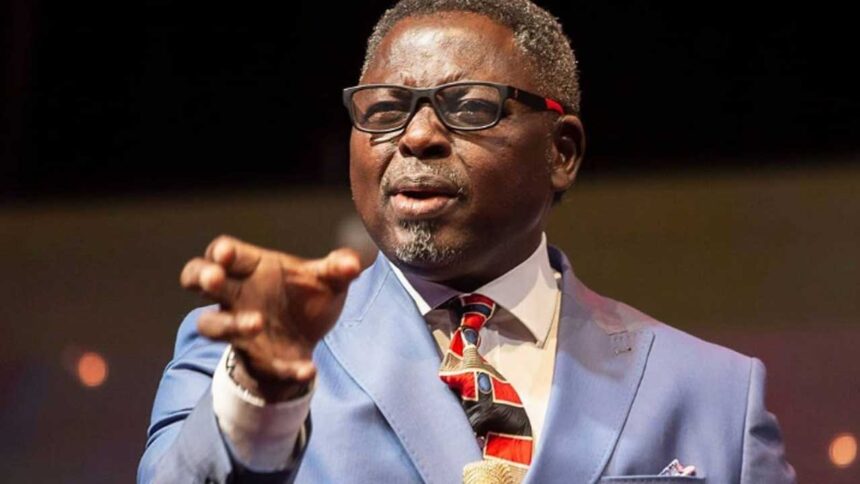Senior Pastor Matthew Ashimolowo of Kingsway International Christian Centre (KICC) has provided an analysis of the root cause of Christian genocide in Nigeria.
The prominent Pastor’s explanation comes amid national and international debate over the classification and government response to the killings of Christians in the country.
Speaking on whether there is genocide in Nigeria or not, Ashimolowo said the definition of genocide should guide public discourse.
Ashimolowo, speaking during a press conference of the Christ Compassion to the Rural World (CCRW) stated that the wave of targeted killings is not merely a manifestation of isolated banditry or farmer-herder clashes but is rooted in what he described as historical and systemic factors.
He argued that the perceived complicity of certain government elements, coupled with decades of unchecked extremist ideologies, has nourished the root of Christian genocide in Nigeria.
According to him: “The dictionary defines genocide as deliberate and systematic killing or persecution of a large number of people from a particular national or ethnic group to destroy that nation or group,” he began.
“With that definition, I want to turn my answers into questions for all of you here today.”
The cleric, who recalled growing up in Zaria and experiencing communal and religious violence first-hand, said his views on the root of Christian genocide in Nigeria were shaped not by newspaper headlines but by life experience.
He continued: “I was born in 1952 in Zaria. I grew up in Kaduna. The first riot I ever experienced was against people from the East. They didn’t tell me; I saw it.
“People were being killed right before my eyes. Soldiers tried to prevent it, but the killings continued as attackers marched through the streets shouting ‘Tawai’, meaning ‘Our eyes are opened.’”
According to him, many violent episodes across decades bear the marks of systematic targeting. He listed historical and recent incidents from the Maitatsine crisis to Zangon-Kataf killings, beheading of Christian evangelists, the murder of Deborah Samuel, and multiple attacks in Benue and Southern Kaduna, arguing that they raise troubling questions.
“Is that genocide or not?” he repeatedly asked.
“Banditry is a head. Terrorism is a threat. Armed herdsmen invading farms is another head. Extortionists demanding money are ahead.
“And then, deliberate chasing of people away from their land and replacing them with another tribe; that too is a head,” he said.
Ashimolowo questioned why the scale of attacks on Christian communities has not resulted in a stronger national and legal response.
Citing the abduction of the Chibok schoolgirls and other cases, he stated that the perpetrators committed multiple crimes, including rape, trafficking, forced conversion, and forced marriage.
“The same people who committed these crimes, you said you forgave them. Who forgave them? Where were they forgiven? Which court of law did that?” he queried.
“How can a man who killed and raped now be brought into the military or the Air Force? How can such a person defend the Federal Republic of Nigeria?”
He also recounted visiting Maiduguri in 1987 and discovering that churches were restricted to one area of the city, many of which had been burnt.
He asked: “Are there two Nigerians? How come that in one Nigeria, churches cannot operate and people can be hacked? Is there genocide? I didn’t say there is. You will have to answer whether there is genocide or not.
“My mother used to say, if a child keeps throwing stones and the stones never finish, there is a supplier.
“Despite the civil war ending decades ago, terror continues every day. Why can’t it end? Somebody somewhere does not want us to face reality.”





